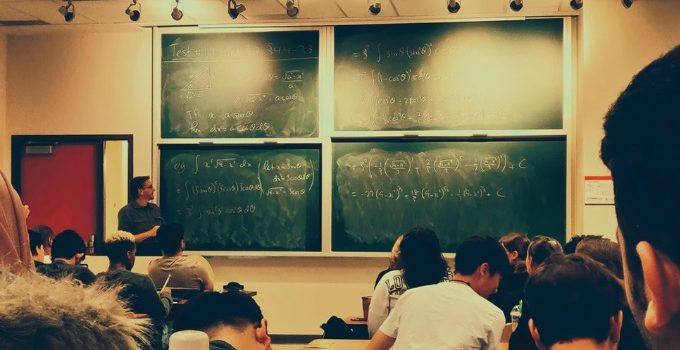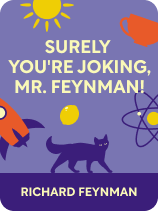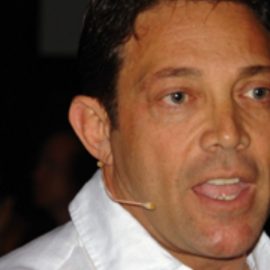

This article is an excerpt from the Shortform book guide to "Surely You're Joking, Mr. Feynman!" by Richard Feynman. Shortform has the world's best summaries and analyses of books you should be reading.
Like this article? Sign up for a free trial here.
What teaching practice horrified Richard Feynman? What shocked him about textbooks?
While Richard Feynman injected his lifelong learning with a casual sense of fun and exploration, one thing he took very seriously was his role as a teacher. In his memoir Surely You’re Joking, Mr. Feynman! he writes about his trials and triumphs in teaching.
Keep reading to learn about Richard Feynman’s teaching experience and what it taught him.
Richard Feynman on Teaching
According to Richard Feynman, teaching serves two vital functions in his life: It keeps him engaged with the underlying principles of his field, and it allows him to make a positive contribution to the world. In his memoir, he describes the personal benefits he derives from teaching and highlights two specific examples where his beliefs on the subject clashed with those of others, once in Brazil and once in California.
Feynman is insistent that he’d never consider working in a non-teaching position. From a purely personal perspective, it forces him to review and reassess everything he assumes that he knows about the field of physics. He finds that the process of teaching those ideas will occasionally lead to questioning them and finding new approaches to problems and theories that wouldn’t have occurred to him otherwise. Teaching also keeps his mind active on those occasions when he doesn’t have a pressing theoretical problem to solve. In other words, teaching is good for the mind, as much for the instructor as it is for the students.
(Shortform note: Feynman wasn’t the first to notice teaching’s cognitive benefits for the teacher. The Roman philosopher Seneca noted that “when we teach, we learn,” a process referred to today as the protégé effect. When you expect to teach an idea to others, it makes you more aware of how you learn and leads you to seek out the most effective ways to understand and communicate what you’re teaching. Because teaching others is such an effective learning tool, many teachers are starting to employ it as an educational strategy, assigning students to teach important concepts to other students, family members, or even artificial intelligence programs designed to act as “teachable agents.”)
During a sabbatical year in Brazil in which Feynman taught science to prospective science teachers, he came across a peculiar phenomenon. His students appeared to have learned many scientific facts without understanding anything about them. When he pushed them to apply their knowledge through practical exercises, they couldn’t. He discovered that, previously, his students had learned by rote memorization in order to pass a standardized test. Feynman recalls being horrified that this was how future teachers were trained, and he said so during a lecture he gave to the Brazilian teaching establishment. He explained that passing tests isn’t the point of education. Without practical application, there can be no learning.
(Shortform note: Feynman’s disdain for memorization isn’t shared by all educators. In Better Grades, Less Effort, neuroscientist William R. Klemm argues that memorization is essential for many fields of knowledge and that students should be taught efficient and effective memory techniques. However, many educators differentiate between memorizing information and understanding it in a way that incorporates meaning and significance. In Moonwalking With Einstein, Joshua Foer says that despite the backlash against rote memorization in education, having a wealth of memorized knowledge is important because it provides a pattern of associations with which you can interpret new information.)
This truth came home for Feynman years later when he served on a California state committee responsible for selecting math and science textbooks. This was during a time when the US was trying to catch up with the Russians post-Sputnik by emphasizing science and math. When Feynman actually read the texts under review, he was shocked to find that the books’ authors apparently didn’t understand their own subjects. The books also tended to be full of abstract concepts without applications that students could try on their own. Feynman insisted the textbooks he reviewed would do students a disservice and discourage learning instead of providing a real-world foundation for knowledge that would serve students later in life.
It was all for naught. Budget cuts to California’s Board of Education put the program on a back burner and severely restricted the number and quality of textbooks Feynman’s committee could recommend. When asked to do the same for science textbooks the following year, Feynman declined to participate any further.
| The Trouble With Textbooks The problems Feynman found with math textbooks in the 1950s continue to this day and aren’t confined to the US. A 2022 study by Michigan State University discovered that in math textbooks from around the world, fewer than 1% of the exercises for students cover any practical use of mathematics. According to the nonprofit Association for Supervision and Curriculum Development, math textbooks in the US aren’t vetted for their efficacy at developing math skills, nor are they modeled after those in other countries that significantly outperform the US in mathematics education, such as Singapore and Japan. Since teachers use textbooks as their primary resource for problems and activities, educators can feel limited by the options their textbooks offer. In Limitless Mind, Jo Boaler urges teachers to break free of textbook examples and challenge students to tackle more difficult problems while leaning into the idea that every problem can be solved by a multitude of creative approaches. In a sense, Boaler wants teachers and students to approach math topics with a creative sense of play similar to Feynman’s approach to problem-solving. |

———End of Preview———
Like what you just read? Read the rest of the world's best book summary and analysis of Richard Feynman's "Surely You're Joking, Mr. Feynman!" at Shortform.
Here's what you'll find in our full Surely You're Joking, Mr. Feynman! summary:
- The memoir of award-winning scientist Richard Feynman
- A walk through Feynman's life, from college to winning the Nobel Prize
- Why enjoying life is just as valuable as your education






